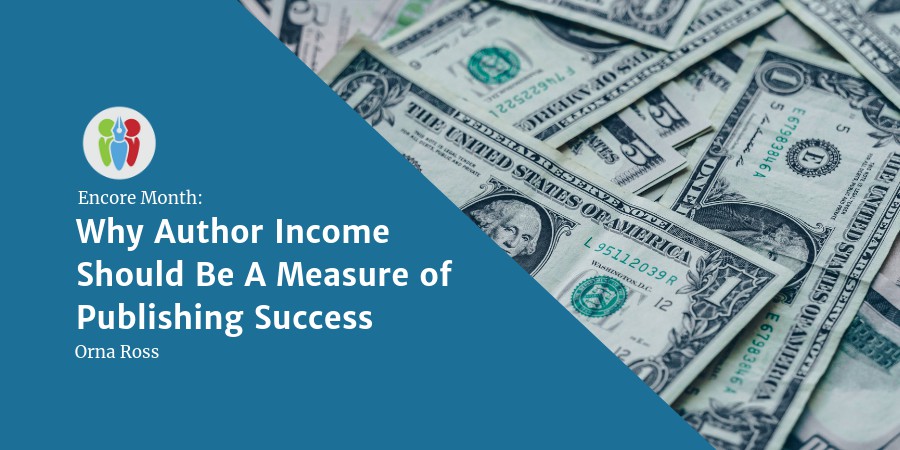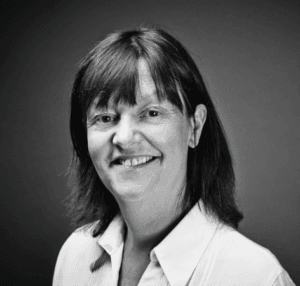ALLi Director Orna Ross expands on a statement she made in a previous AskALLi Advanced Salon: that indie author income should be a measure of self- publishing success. She responds to comments for and against that motion, and explains the background to her thinking about author income. Where do you stand on this issue? Read the post then join the encore debate via the comments box!
There are very few “shoulds” in Indie Author Land. Ours is a dynamic environment, where the rules – where there are any – change rapidly and one of the great delights of our work is being part of a broad church, that attracts writers from every kind of background, with every definition of success.
Money is the measure of author success most often used by the outer world, which often seems to be obsessed with bestsellers. But, in a different way, money is also a measure that each indie author can use ourselves, to track our progress and spur our growth, no matter what other values we may also be pursuing.
During last week's AskALLi Advanced Self-publishing Salon with ALLi's Enterprise Advisor and author advice guru, Joanna Penn, I found myself saying:
“Let money be your measure of success.”
I was addressing the way in which authors expend a lot of creative energy, time and money chasing Facebook Likes, Twitter followings, Amazon rankings, or positive reader feedback or reviews. The suggestion was that money–profit– would be a better metric to track publishing success and measure progress.
It was one of those off-the-cuff comments that surprised afterwards with the unexpected level of response it drew, much of it highly impassioned.
Indie Author Income As A Measure of Success
There were those who agreed. Historical fiction author Jane Steen made this public comment on the video on Facebook Live:
“Loved ‘let money be your measure'. We're too inclined to be shy about saying how much we earn – at first because we're earning so little, and then eventually because we don't want to sound like we're bragging! I loved it back in 2011-2012 when the early self-publishers posted earnings reports.
Then there were those who vehemently opposed the very thought. Much of that correspondence was private. I'll let this paragraph from a member I'll call John represent that position.
“I was horrified to hear you say that authors should make money their measure of success. The very reason I write is to escape all that. I get quite enough of it everywhere else in my life, thank you very much. My boss, my wife, my bank. It’s not what I expect from my authors' group. Or, Orna, to be frank, from you. I'm very disappointed.”
There were less polite messages and it’s interesting to me that so many of those negative responses were private. I've given them all consideration, but I stand by the comment, which was made in the context of our AskALLi Advanced Salon. That monthly salon is aimed at authors who want to sell more books and reach more readers and be better publishers. When surveying success in such publishing endeavors, I believe income is the best measure we have.
The more businesslike among you are likely scratching your head at why we're even having this discussion. For you, it's obvious. Of course, money should be the measure! That's what running a business means!
But I also get where people like John are coming from. Ours is not the stuff of everyday, conventional business. Writers, creatives, anyone who runs a passion-powered business doesn't make profit an overwhelming motive, or we wouldn't be doing what we do in the first place.
Profit is not to the forefront when we write, clearly. Often we're driven by a mysterious passion, a compulsive need. (The Irish author Hugh Leonard used to say the need to write was an illness and we were to be pitied).
When we wear our publishing hat, too, the profit motive needs to held in fine balance with our need to do what we need to do. But it should be there. We shouldn't, as too many authors do, give ourselves away–whether to a publisher, our readers or anyone else.
Indie authors are creative entrepreneurs (CEs) who, by definition, always have to balance profit with passion, creativity with commerce. It's not either-or, it's both.
For many of us there are tension between the two.
Indie Author Income: Creative AND Commercial
Some indie authors handle these tension by polarising writing and publishing. Creative hat=writing, commercial hat=publishing. But this overlooks the fact that there are many rote activities associated with writing that are not particularly creative. And, more importantly, publishing can be highly creative and we lose our sense of that if we label it commercial. “I love writing but I hate marketing,” for example.
Actually indie authors, like other creative entrepreneurs, have three jobs: making (the creative writer); managing (the creative director) and maximizing influence and impact (the creative promotor).
(More on the suggestion that we wear three hats, not two, in this blog post. And you'll find a Facebook group organized around this “three hat” principle here)
Indie Author Income: From Career To Business
Until recently writing books was a career, a profession. Authors were content providers for other businesses (publishers) set up within a scarcity business model. In this model, only a few of the many authors who write can be accommodated (receive a publishing contract and bookstore opportunity). And only a small subset of that lucky few can be afforded the sort of marketing that makes financial success likely.
Since the onset of the internet and online commerce, that has changed. Authors now also have self-publishing, which is set up within an abundance model. Key difference is: self-publishing puts us into business ourselves.
Now we're not freelancers, trading our time for money. We're not content providers pitching for some of the tiny bookshelf space available. We're business owners.
We own the rights in our media and publishing enterprises, we own the assets, we own the money flow. Problem is, we don't necessarily know how to access that opportunity, or what to do with all the abundance exploding all around us.
We may not yet caught up with the implications of the change. We can be enmeshed in the old way of thinking, or not have thought through how going indie changes our definitions and our approach.
We can be carrying an unconscious bias against business, or some other kind of mindset that comes between us and success.
Indie Author Income: Old Way Versus New Way
The difference between the old way and the new was forcefully brought home to me during a recent appearance before the UK government's All-Party Committee on Author Income. The other organizations like the Society of Authors and the Authors' Guild were fixed on local issues (Brexit) and the profits of the trade-publishing industry and how that is shared with authors. Their recommendations were around copyright restriction and making sure that publishers are fair in sharing out. For them, Amazon is all bad, a blight on the publishing landscape.
The Alliance of Independent Authors was more concerned with international VAT and other sales taxes, with the availability of global distribution for authors (ebook, audiobook and print-on-demand), including bookstore access, and with business and mindset training for authors.
We were asking the UK government to recognize author-publishing as a new way offering significantly more opportunity for improving author income. And asking them to support the training authors need to recognize and avail of that opportunity. (See ALLi's Self-Publishing 3.0 campaign for more on this). For us, Amazon is a mixed blessing but mostly, to date, a blessing.
[Note: ALLi is now expanding this work into six key territories: Australia, Canada, Ireland, New Zealand, UK and US, calling on government and creative industry bodies to recognize the entrepreneurial nature of authorship today, and the social, cultural and–yes–economic contribution of our work. Our next submission will be to the New Zealand Review of Copyright]I want to stress that this is our Monday Opinion Column and what I said on the podcast, and here in this post, is not ALLi policy, but my personal opinion. And that I'm not talking about writing here, but about the publishing side of our business.
It's an opinion arrived at from my own experience as an indie author, and the experience of observing thousands of other indie authors, close up.
What the responses to my podcast comment make clear is that our connection to money is a relationship that stirs strong emotion. If you take the emotion out of it, however, I do still think the profit in our author business is the best measure we can have of the value that we are offering.
I'd personally love to see more authors earning a decent living from their writing. And I think the best way to see that happen is for more authors to take money more seriously as a measure of success.
And intentionally begin to take the steps that will see them earn more.
What do you think? Is there a better measure of publishing success? How do you define success in your publishing business?
#Indieauthors - how do you measure #selfpub success? ALLi Director @OrnaRoss makes the case for measuring it by MONEY! Read why & join the debate! Share on XFURTHER READING AND ADVICE
Go Creative! in Business
Orna is writing a series of books about doing creative business the creative way. You can pre-order here
Join her Go Creative! in Business Facebook Group here.
From the ALLi Author Advice Center Archive
https://selfpublishingadvice.org/author-earnings-through-author-business/






How do I publish my own book it’s a kids book